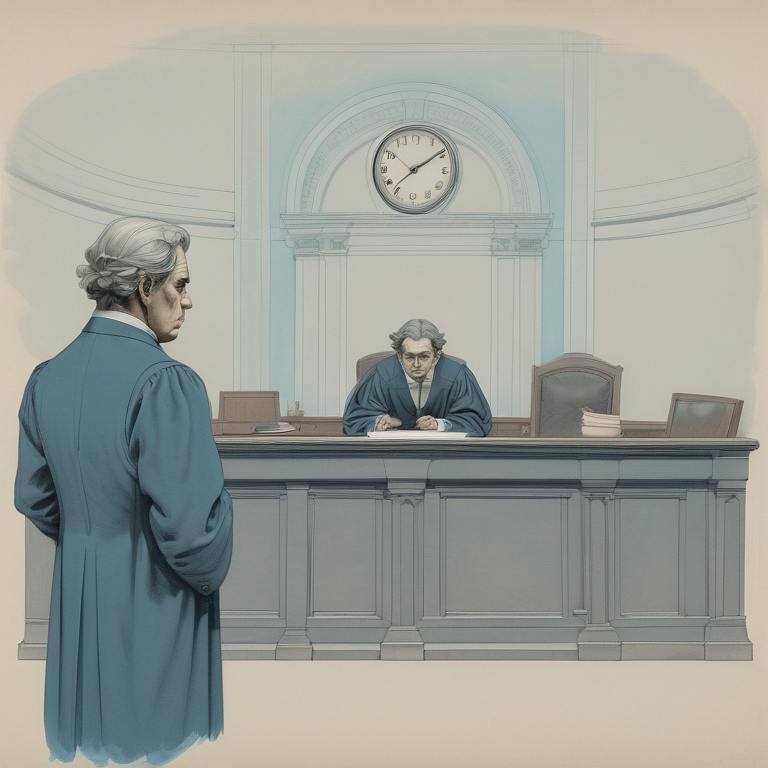The divorce process in Ireland typically takes a minimum of four years. This involves a two-year separation period before a divorce can be granted, followed by a further two-year waiting period before the divorce is finalised. The entire procedure usually spans a total of around four years. Navigating the legal landscape of divorce in Ireland can be a lengthy journey. From the initial separation period to the finalisation of the divorce, couples are often looking at a timeline of around four years before reaching a resolution. This extended process allows for thorough consideration and reflection before making such a significant life-changing decision.
Key Highlights
- The divorce process in Ireland can take anywhere from 3 to months, depending on the circumstances.
- Before applying for a divorce, couples must meet certain conditions, including living apart for at least 2 out of the previous 3 years and making proper arrangements for their spouse and any dependent family members.
- Couples can enter into a separation agreement or apply for a judicial separation before seeking a divorce, but it is not necessary to do so.
- The length of proceedings can vary depending on whether the divorce is contested or uncontested, with contested divorces often taking longer to resolve.
- Mediation can help speed up the divorce process by allowing couples to negotiate their own terms of agreement.
- DIY divorce solutions are also available in Ireland, providing an alternative to traditional divorce paths.www.diydivorcesolutions.ie
Introduction
Divorce is a difficult and emotionally challenging process for couples to go through. In Ireland, the length of time it takes to obtain a divorce can vary depending on a number of factors. Understanding the divorce process and the legal requirements can help couples navigate this challenging time more effectively.
In this blog, we will explore the divorce process in Ireland and answer the question, “How long does it take for a divorce in Ireland?” We will discuss the key highlights of the divorce process, including the legal requirements for divorce and the role of separation agreements and judicial separation. We will also provide a step-by-step guide to filing for divorce, as well as explore the factors that can affect the length of divorce proceedings. Additionally, we will discuss the role of mediation in speeding up the divorce process and explore alternatives to traditional divorce paths.
By the end of this blog, readers will have a better understanding of the divorce process in Ireland and the factors that can impact the duration of divorce proceedings. Whether you are considering filing for divorce or simply want to learn more about the process, this blog will provide valuable insights into the divorce process in Ireland.www.diydivorcesolutions.ie
Understanding the Divorce Process in Ireland
The divorce process in Ireland is governed by the Family Law Act and requires couples to follow specific procedures outlined in the civil bill. The process begins with the legal requirements for divorce, which include living apart for a certain period of time. Couples can then choose to enter into a separation agreement or apply for a judicial separation before proceeding with a divorce. The divorce process itself involves filing the necessary documents, attending court hearings, and potentially resolving any contested issues. It is important to understand the divorce process in Ireland to ensure a smooth and efficient resolution.
The Legal Requirements for Divorce
Before a court can grant a divorce in Ireland, couples must meet certain legal requirements. These requirements include living apart for a specified period of time, typically 2 out of the previous 3 years. The Family Law Act clarifies that “living apart” includes couples who live in the same home but are not living together as a couple. Additionally, couples must be domiciled or have lived in Ireland for a certain period of time before applying for a divorce.
Couples must also accept that there is no reasonable prospect of reconciliation and that proper arrangements have been made or will be made for the spouse and any dependent family members. Once these legal requirements are met, couples can proceed with the divorce process, which involves filing the necessary documents and attending court hearings. www.diydivorcesolutions.ie
Separation Agreements and Judicial Separation
Before seeking a divorce in Ireland, couples have the option to enter into a separation agreement or apply for a judicial separation. A separation agreement is a legally binding contract between the spouses that outlines the rights and obligations of each party as they end their relationship. This agreement is typically reached through mediation or negotiation with the assistance of family law solicitors.
Alternatively, couples can apply for a judicial separation if they cannot agree on the terms for living separately. A judicial separation is a legal document that confirms the end of the marital relationship and the cessation of the obligation to live together. The court may also make orders regarding child custody, access, and other matters. It is important to note that entering into a separation agreement or obtaining a judicial separation is not necessary before applying for a divorce in Ireland. www.diydivorcesolutions.ie
Key Takeaways on Divorce Duration in Ireland
- The duration of a divorce in Ireland can vary depending on the circumstances, but it generally takes between 3 to 9 months.
- Couples must meet certain legal requirements, including living apart for a specific period of time and making proper arrangements for their spouse and any dependent family members.
- The divorce process involves filing the necessary documents, attending court hearings, and potentially resolving any contested issues.
- Mediation can help expedite the divorce process by allowing couples to negotiate their own terms of agreement.
- DIY divorce solutions and alternatives to traditional divorce paths are available in Ireland.
Clearly Describe the Divorce Timeline
The divorce timeline in Ireland can vary depending on the individual circumstances of each case. However, the following is a general overview of the stages involved in the divorce process:
|
Stage |
Description |
|
Divorce Application |
The process begins with filing a divorce application, known as a Family Law Civil Bill, in the court where the case will be heard. |
|
Case Progression |
After filing the application, the court will schedule a case progression hearing to determine the outstanding issues and prepare for a trial date. |
|
Trial Preparation |
Both parties gather and exchange relevant information, such as financial documents and affidavits, in preparation for the trial. |
|
Trial |
The case is presented before the court, and both parties present their arguments and evidence. The court will then make a decision on the divorce. |
|
Final Decree of Divorce |
If the court grants the divorce, a final decree of divorce is issued, officially dissolving the marriage and allowing both parties to remarry. |
It is important to note that the length of each stage can vary depending on the complexity of the case and the availability of court dates. Additionally, the timeline can be shorter for uncontested divorces where both parties agree on all terms of the divorce.www.diydivorcesolutions.ie
Summarising State of Knowledge: Knowns and Unknowns
When it comes to the length of divorce proceedings in Ireland, there are several known factors that can affect the duration. These include whether the divorce is contested or uncontested, the complexity of the issues involved, and the availability of court dates. Contested divorces, where couples cannot agree on the terms, tend to take longer to resolve as they require more court hearings and potentially a trial.
On the other hand, uncontested divorces, where both parties agree on all terms, can be resolved more quickly. The presence of proper arrangements for the spouse and any dependent family members is also a known factor that must be met before a divorce can be granted.
However, there are also unknown factors that can impact the duration of divorce proceedings, such as the backlog of cases in the court system and the individual circumstances of each case. It is important for couples going through a divorce to seek our legal advice and guidance to navigate the process as effectively and efficiently as possible. www.diydivorcesolutions.ie
Step-by-Step Guide to Filing for Divorce
Filing for divorce in Ireland involves several steps. Here is a step-by-step guide to help you navigate the process:
- Consult our family law solicitor: Seek our legal advice and guidance from a family law solicitor who specialises in divorce cases. They can provide guidance on the specific requirements and procedures applicable to your case.
- Gather necessary documents: Collect all necessary documents, including your marriage certificate, financial information, and any relevant agreements or arrangements.
- Complete the divorce application: Fill out the divorce application, known as a Family Law Civil Bill, which can be obtained from the Courts Service website or your local Circuit Court office.
- File the application: Submit the completed application to the appropriate court, along with the required supporting documents and any applicable fees.
- Serve the application: Arrange for the application to be served on your spouse, following the proper legal procedures.
- Attend court hearings: Attend any scheduled court hearings and provide any additional documentation or information as requested by the court. www.diydivorcesolutions.ie
Initiating the Divorce Application
Initiating the divorce application is the first step in the divorce process in Ireland. This involves completing the divorce application, known as a Family Law Civil Bill, and filing it with the appropriate court. The application will outline the details of the marriage, the reasons for seeking the divorce, and any specific orders or arrangements being sought, such as child custody or financial support.
Once the application has been filed, the court will review the documents and schedule a court hearing. It is important to consult with a family law solicitor to ensure that the application is completed correctly and to provide guidance throughout the process. They can also represent you at the court hearing and help advocate for your interests.
Necessary Documentation for Divorce Proceedings
When filing for divorce in Ireland, it is important to gather and submit the necessary documentation to support your case. This documentation may include:
- Marriage certificate: A copy of your marriage certificate will be required to prove that a valid marriage exists.
- Accompanying affidavits: Affidavits are sworn statements that provide supporting evidence for the divorce application. These may include affidavits of means, which outline the financial circumstances of each party, and affidavits of welfare, which address the care and well-being of any children involved.
- Financial documents: It may be necessary to provide documentation related to your financial circumstances, such as bank statements, tax returns, and proof of income and expenses.
- Other relevant documents: Depending on the specific circumstances of your case, you may need to provide other documents, such as property deeds or agreements, medical records, or evidence of any agreements reached between you and your spouse.
It is important to consult with a family law solicitor to ensure that you have gathered all the necessary documentation and that it is properly prepared and submitted to the court. www.diydivorcesolutions.ie
Factors Affecting the Length of Divorce Proceedings
The length of divorce proceedings in Ireland can be influenced by a number of factors. One of the key factors is whether the divorce is contested or uncontested. Contested divorces, where couples cannot agree on the terms, tend to take longer as they require more court hearings and potentially a trial. Uncontested divorces, where both parties agree on all terms, can be resolved more quickly.
Other factors that can affect the length of divorce proceedings include the complexity of the issues involved, the availability of court dates, and the individual circumstances of each case. It is important for couples going through a divorce to seek our legal advice and guidance to navigate the process as effectively and efficiently as possible. www.diydivorcesolutions.ie
Uncontested vs. Contested Divorce
In divorce cases, there are two main categories: uncontested and contested divorces. An uncontested divorce occurs when both parties agree on all terms of the divorce, including child custody, financial matters, and the division of assets. In these cases, the divorce process can be completed more quickly and with less conflict as there are no court proceedings or trials involved.
On the other hand, a contested divorce occurs when there is a disagreement on one or more terms of the divorce. This can lead to court proceedings, where both parties present their arguments and evidence to the court. Contested divorces can take longer to resolve as they require more court hearings and potentially a trial. It is important for couples to seek our legal advice and consider mediation or other alternative dispute resolution methods to try to reach a mutually agreeable solution and avoid the need for a contested divorce. www.diydivorcesolutions.ie
Impact of Children and Asset Distribution on Divorce Duration
The presence of children and the complexity of asset distribution can significantly impact the duration of divorce proceedings in Ireland. Child custody and support issues require careful consideration and often involve negotiations and court hearings to determine the best interests of the children. These issues can extend the duration of divorce proceedings, particularly if there is disagreement between the parents.
Similarly, the distribution of assets, including property, finances, and other possessions, can be a complex process. Couples must reach agreements or seek court intervention to ensure a fair and equitable division of assets. This can involve valuations, appraisals, and negotiations, which can further extend the duration of divorce proceedings.
It is important for couples to seek our legal advice and consider alternative dispute resolution methods, such as mediation, to try to reach agreements on these sensitive issues and avoid lengthy court battles. www.diydivorcesolutions.ie
The Role of Mediation in Speeding Up the Divorce Process
Mediation plays a crucial role in speeding up the divorce process in Ireland by providing couples with an alternative to lengthy court battles. Mediation is a process where a neutral third party, known as a mediator, helps couples reach agreements on the terms of their divorce. The mediator facilitates communication, helps identify common goals, and assists in generating solutions that are mutually acceptable to both parties.
By opting for mediation, couples can avoid contested court proceedings and reach agreements more quickly. Mediation can take place in a variety of settings, including family courts and circuit courts. It is important for couples to consult with an experienced family law solicitor and explore the option of mediation to expedite the divorce process and reduce conflict.
What Is Mediation and How Can It Help?
Mediation is a process that allows couples to negotiate their own terms of agreement in a divorce, with the assistance of a trained mediator. The mediator is a neutral third party who helps facilitate communication and guides the couple towards mutually acceptable solutions. Mediation can take place in family courts or through private mediation services.
Mediation can help speed up the divorce process by allowing couples to avoid lengthy court battles and reach agreements more quickly. It provides a platform for open and constructive communication, which can help reduce conflict and promote cooperation. It is important for couples to seek our legal advice and guidance throughout the mediation process to ensure their rights and interests are protected. www.diydivorcesolutions.ie
Finding a Mediator and Preparing for Mediation Sessions
When considering mediation as an option, it is important to find an experienced family law solicitor who can guide you through the process. They can provide recommendations for qualified mediators and help you prepare for mediation sessions. It is also advisable to obtain a court order to protect your rights and ensure that any agreements reached during mediation are binding.
Preparing for mediation sessions involves gathering relevant documents, such as financial information and any existing agreements or court orders. It is also important to have a clear understanding of your goals and priorities for the mediation process. By being well-prepared and working with an experienced family law solicitor, you can maximise the benefits of mediation and potentially speed up the divorce process.
Exploring Alternatives to Traditional Divorce Paths
In addition to traditional divorce paths, there are alternative options available in Ireland that couples can consider. DIY divorce solutions, also known as do-it-yourself divorce, provide a streamlined and cost-effective approach to divorce. These solutions involve couples completing the necessary paperwork and navigating the process themselves, without the need for legal representation. However, it is important to note that DIY divorce solutions may not be suitable for all situations and it is advisable to seek our legal advice to ensure that your rights and interests are protected.
Another alternative to traditional divorce paths is seeking a decree of judicial separation, which is a legal document confirming that you and your spouse are no longer obliged to live together as a married couple. This option provides a level of separation without completely dissolving the marriage.www.diydivorcesolutions.ie
DIY Divorce Solutions: How They Work
DIY divorce solutions offer couples an alternative option for obtaining a divorce in Ireland. These solutions allow couples to complete the necessary paperwork and navigate the divorce process themselves, without the need for legal representation. DIY divorce solutions typically involve the following steps:
- Gathering necessary documents: Couples must gather all necessary documents, including marriage certificates, financial information, and any existing agreements or arrangements.
- Completing the necessary forms: Couples must complete the required forms, including a divorce application and accompanying affidavits.
- Submitting the forms to the court: The completed forms, along with any applicable fees, must be submitted to the appropriate court.
- Court review: The court will review the documents and, if everything is in order, issue a decree of divorce, officially dissolving the marriage.
It is important to note that DIY divorce solutions require careful attention to detail and compliance with all legal requirements. It is advisable to seek our legal advice or consult with our DIY divorce solutions to ensure that the process is completed correctly and that any agreements reached are legally binding. www.diydivorcesolutions.ie
www.diydivorcesolutions.ie as a Resource
One valuable resource for couples considering DIY divorce solutions is www.diydivorcesolutions.ie. This website provides information and guidance on the DIY divorce process in Ireland. It offers step-by-step instructions, downloadable forms, and other resources to help couples navigate the divorce process on their own.
www.diydivorcesolutions.ie is a reliable source of information on legal separation, the Family Law Act, and other relevant legal requirements. It can be a helpful tool for couples who wish to pursue a DIY divorce and want to ensure that they have access to accurate and up-to-date information. However, it is advisable to consult with a family law solicitor or seek our legal advice to ensure that your rights and interests are protected throughout the divorce process.
Conclusion
In conclusion, navigating the divorce process in Ireland requires understanding the legal requirements, timelines, and factors that impact the duration of proceedings. Whether choosing mediation, DIY solutions, or a traditional path, being informed can make the process smoother. By familiarising yourself with divorce laws and seeking appropriate support, you can handle the transition with confidence. Each case is unique, so tailoring your approach to your specific circumstances is essential for a successful and efficient divorce journey. With guidance from www.diydivorcesolutions.ie, you have a valuable resource to streamline the process and move forward effectively.. www.diydivorcesolutions.ie
Frequently Asked Questions
What Is the Minimum Time Required to File for Divorce in Ireland?
The minimum time required to file for divorce in Ireland is determined by the Family Law Act. Couples must have lived apart for at least 2 out of the previous 3 years before they can apply for divorce. This requirement is outlined in the civil bill, which is the application form for divorce.
Can Mediation Really Speed Up the Divorce Process?
Yes, mediation can speed up the divorce process by allowing couples to negotiate their own terms of agreement. Mediation provides a platform for open communication and can help couples reach agreements more quickly, potentially avoiding lengthy court battles. It is important to seek our legal advice and guidance throughout the mediation process to ensure your rights and interests are protected.
How Does Contested vs. Uncontested Divorce Affect Duration?
Contested divorces, where couples cannot agree on the terms, often take longer to resolve as they require more court hearings and potentially a trial. Uncontested divorces, where both parties agree on all terms, can be resolved more quickly. The duration of divorce proceedings can vary depending on whether the divorce is contested or uncontested.
What Are the Implications of Divorce on Child Custody and Support?
Divorce can have significant implications on child custody and support. The court will consider the best interests of the child when making decisions about custody and access arrangements. Proper arrangements must be made for the spouse and any dependent family members, including children. These arrangements, including financial support, will be addressed in the divorce case and may be included in a court order.
How Can DIY Divorce Solutions Simplify the Process?
DIY divorce solutions can simplify the divorce process by providing couples with the tools and resources they need to navigate the process on their own. These solutions typically involve completing the necessary paperwork and submitting it to the appropriate court. DIY divorce solutions can be a cost-effective and streamlined alternative to traditional divorce paths. It is important to ensure that all legal requirements are met and that any agreements reached are legally binding.










